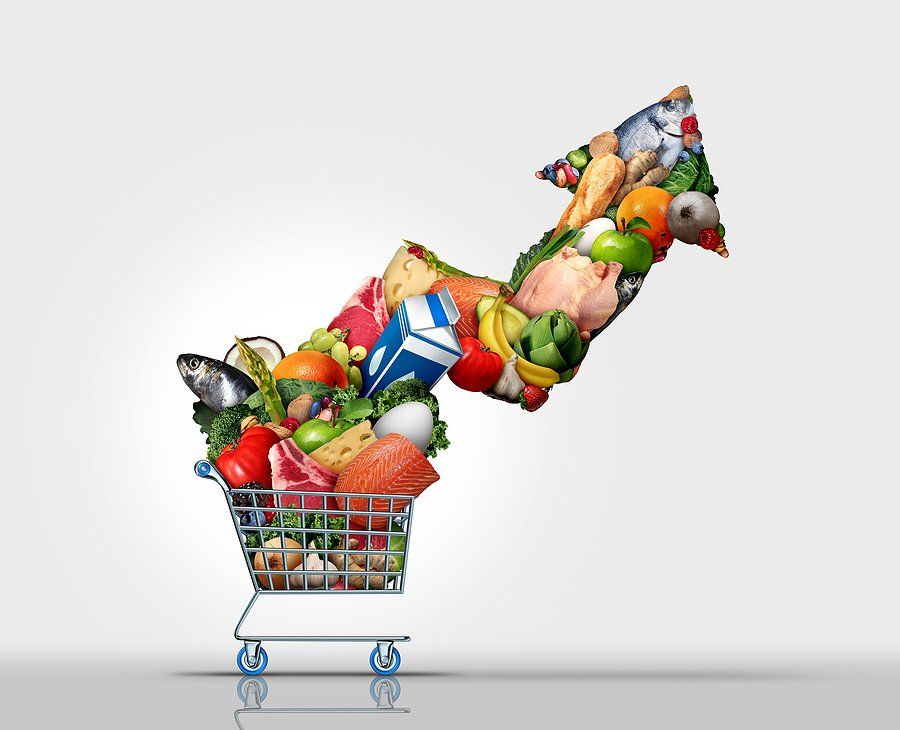News Articles

Australian consumer prices surged at the fastest annual pace in two decades in the first quarter of 2022 as petrol, home building and food cost all climbed, prompting the Reserve Bank of Australia to increase interest rates1.
Inflation is going up at an annual pace of 5.1%, the fastest rate since before the Global Financial Crisis and, consequently, our country is seeing some of the biggest economic changes experienced since the start of the century, but what does this mean for you?
Changes in the inflation rate can affect consumers and businesses, but first, let’s define inflation.
What is inflation?
The financial watchdog, the International Monetary Fund, defines inflation as ‘the rate of increase in prices over a given period of time’2. Typically, a broad measure, inflation considers the overall increase in prices or the increase in the cost of living in a country.
Generally measured annually, it is most common for prices to rise over time, but they can also fall (deflation).
The Australian Bureau of Statistics (ABS) measures inflation via a Consumer Price Increase (CPI), which is published quarterly. They take into account household costs such as food, bills and transport, amongst other everyday expenses.
An ‘inflation target’ is used to provide a framework to help keep the CPI between certain rates - generally between 2-3 percent is the RBA’s preferred inflation target. This in turn supports the RBA in strengthening price stability, full employment and the welfare of Australians. "If the ABS are the ‘scorekeepers’ of inflation, the RBA are the ‘goal setters’3: setting the target rate for inflation and trying to influence it," says Canstar.
Coming out of the pandemic, economists say that Australia and the RBA may have underestimated the strength of demand on the CPI and a resulting drop in joblessness4, as well as Russia’s invasion of Ukraine, energy and soaring food prices caused by snags in supply chains. The supply chain challenges that can be traced to the pandemic are pushing up the cost of doing business. In turn, supermarket chains and other retailers are passing onto consumers these extra costs by way of higher prices. Consequently, further increases in inflation are predicted.
Preparing your small business for inflation
There is no doubt that inflation rises affect all industries, big or small. Some may benefit, while others will find the rising costs a tough slog.
The benefits of talking to an accountant about strategies to help combat inflation is obvious, no matter what type of business you are running. There are a number of ways to address the inflationary environment we now find ourselves in, and reassessing business costs and margins could be a good place to start.
At the end of the day, as a business, you don’t want to drop the ball on quality and reputation. But there may be some clever approaches that could help increase margins, hence keeping your business safe from any major financial losses.
Cutting unnecessary costs is a no-brainer. There are many ways to go about this, for example changing or ditching a material that is rarely used. What about build up stocks of popular and inexpensive supplies before there are more price hikes?
Raising prices is also an option, and while customers don’t always like this strategy, they will understand if you do it slowly and fairly. It could be the difference that helps keep your business afloat during these challenging times.
Brentnalls SA would be more than happy to guide you in how to do this in a way that won’t drive away business. For an evaluation of your businesses preparedness to operate in a higher inflationary environment, we are happy to help.
__________________________
- https://www.reuters.com/business/australian-inflation-hits-20-year-high-brings-rate-rises-near-2022-04-27/
- https://www.imf.org/external/pubs/ft/fandd/basics/30-inflation.htm
- https://www.canstar.com.au/home-loans/inflation-explained/
- https://www.theguardian.com/australia-news/2022/may/12/markets-turmoil-and-interest-rate-rises-the-economic-challenges-facing-australia-after-the-election
Discuss Further?
If you would like to discuss, please get in touch.
Disclaimer
The information provided in this article does not constitute advice. The information is of a general nature only and does not take into account your individual financial situation. It should not be used, relied upon, or treated as a substitute for specific professional advice. We recommend that you contact Brentnalls SA before making any decision to discuss your particular requirements or circumstances.







